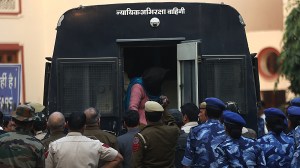In defence of selection
The reported change in IAF’s policy on senior promotions would no doubt lead to new concerns — and new expectations. Both perspect...

The reported change in IAF’s policy on senior promotions would no doubt lead to new concerns — and new expectations. Both perspectives could lead to a distortion of the real issues involved. In principle, every promotion above the rank of major and its equivalent in the defence services is by selection of a few, because of its pyramidal structure which leaves fewer and fewer vacancies as one goes up the hierarchy. The rationale that senior officers need to spend longer time in higher ranks is sound. In the civil services, persons could spend around two decades at the level of the joint secretary’s post and above, as compared to around four to six years for most of the lucky ones in the defence services. These ranks denote the decision-making levels and longer tenures would help improve the management of the defence forces, particularly the air force. Unfortunately, we do not seem to have absorbed the central principles of optimising manpower management, especially at the level of leadership.
The imperative of keeping the force young and of a command chain that is not top heavy, while inducting high quality manpower into the defence forces, requires that suitable dual-career patterns of utilisation are evolved. More important than the promotion policy, therefore, is the mechanism for adequate compensation for the vast majority who are good officers but cannot be promoted. This is where the decision-makers have failed over the decades. Out of the six possible models of manpower employment, India has pursued the one that is the most inefficient and counter-productive.
The answer is amazingly simple: separate rank from pay. The former denotes the authority and responsibility that a person is expected to carry with the post defined in terms of rank. The latter defines the quality of life that the nation expects the serviceman to have, consistent with the social obligations linked to the length of service. There is no professional or financial reason why this cannot be adopted. It is indeed surprising that the Group of Ministers hardly paid any attention to this crucial issue. Demands for a separate pay commission for defence forces have received no serious consideration. Within the overall limits of flawed manpower policies, the attempt to be more selective in promotions to the highest ranks would need to be adopted at middle levels also. But all promotions must take into account performance over at least the past decade rather than a few reports. In any air force the world over, this factor is even more critical, since officers are more directly involved in combat than any other service leading to the famous saying that ‘so many owed so much to so few’.



- 01
- 02
- 03
- 04
- 05




























